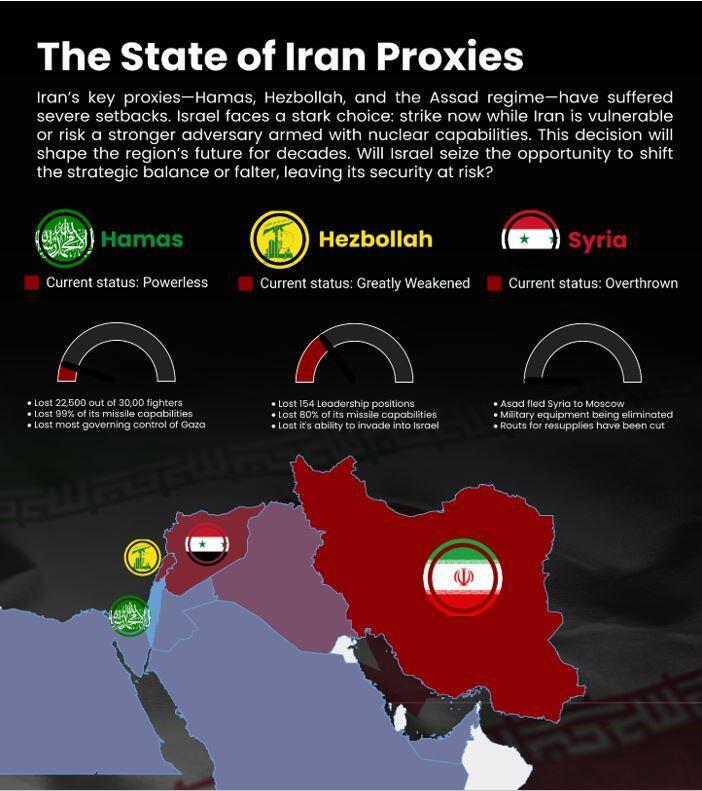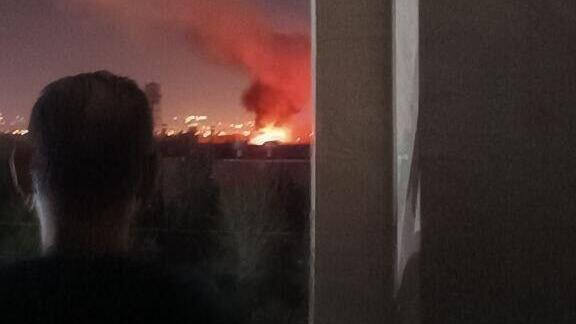Getting your Trinity Audio player ready...
The escalating tensions between Israel and Iran have brought the Middle East to a critical juncture. Israel must decide whether to capitalize on Iran’s weakened proxies and strong domestic support to curb its nuclear ambitions or risk missing a historic opportunity.
In a landmark operation in mid-October 2024, the IDF struck Iranian military facilities deep within Iran, disrupting missile production and crippling defenses. This first-of-its-kind strike showcased extraordinary precision and intelligence. While the U.S. provided strategic support, its absence from direct involvement highlights the complexity of regional alliances.
Iran’s regional proxy strategy is unraveling as its key allies—Hamas, Hezbollah, and the Assad regime—face significant setbacks. Hamas has been rendered a non-operational force, Hezbollah’s arms smuggling networks have been dismantled, and the fall of the Assad regime has pushed Iran out of Syria.
Decades of investment in these proxies are collapsing, leaving Iran increasingly vulnerable. This instability heightens the risk of Iran taking desperate measures to bolster its deterrence and counter a more confident Israel. The prospect of Iran making an irreversible move toward developing a nuclear weapon has never been more imminent.
Israeli strike on Iranian military targets in October
Compounding this, global dynamics are shifting. The rise of BRICS and the weakening of U.S. economic influence have diluted sanctions against Iran. As countries bypass the dollar, Iran's financial reserves could recover, enabling rearmament of its proxies and advancement of its nuclear ambitions. Even with Donald Trump's return to the White House, ongoing trends toward de-globalization may provide Iran with alternative avenues to evade economic sanctions.
Act now or face the consequences
Israel’s victories over Iran’s proxies offer a fleeting advantage. Unless it acts decisively to neutralize Iran’s nuclear threat and cripple its economy, the current respite may give way to a deadlier conflict.
Get the Ynetnews app on your smartphone: Google Play: https://bit.ly/4eJ37pE | Apple App Store: https://bit.ly/3ZL7iNv
While the Abraham Accords offer a vision for regional cooperation, lasting peace hinges on military strength. Israel cannot rely on external allies to secure its future, and the window for decisive action is closing fast.
Israel faces a stark choice: strike now while Iran is vulnerable or risk a stronger adversary armed with nuclear capabilities. This decision will shape the region’s future for decades. Will Israel seize the opportunity to shift the strategic balance or falter, leaving its security at risk?
- This article was written by Yishai Gelb, digital content manager of the War in Israel Database and fellow researcher at the Israel Defense & Security Forum (IDSF).







